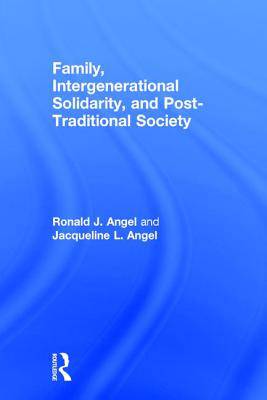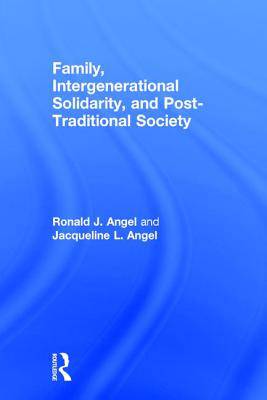
- Retrait gratuit dans votre magasin Club
- 7.000.000 titres dans notre catalogue
- Payer en toute sécurité
- Toujours un magasin près de chez vous
- Retrait gratuit dans votre magasin Club
- 7.000.000 titres dans notre catalogue
- Payer en toute sécurité
- Toujours un magasin près de chez vous
Family, Intergenerational Solidarity, and Post-Traditional Society
Ronald J Angel, Jacqueline L AngelDescription
Almost all families will at some time have to make difficult decisions concerning aging family members, involving institutionalization, moving from medical interventions to palliative care, and even physician-assisted death. Yet, the historical transition from traditional to post-traditional society means that these decisions are no longer determined by strict rules and norms, and the growing role of the welfare state has been accompanied by changes in the nature of family and social solidarity. Advances in medical technology and greatly expanded life spans further complicate the decision-making process. Family, Intergenerational Solidarity, and Post-Traditional Society examines a range of difficult issues that families commonly face during the family life course within these contexts. The book explores both practical and ethical questions regarding filial responsibility and the roles of the state and adult children in providing financial and instrumental support to dependent parents. The book follows the experiences and deliberations of a fictional family through a series of vignettes in which its members must make difficult decisions about the treatment of a seriously ill parent. Advanced undergraduate and graduate students in family studies, gerontology/aging, sociology, social work, health and social care, and nursing will find this essential reading.
Spécifications
Parties prenantes
- Auteur(s) :
- Editeur:
Contenu
- Nombre de pages :
- 300
- Langue:
- Anglais
Caractéristiques
- EAN:
- 9781138240322
- Date de parution :
- 22-06-17
- Format:
- Livre relié
- Format numérique:
- Genaaid
- Dimensions :
- 152 mm x 229 mm
- Poids :
- 588 g







